
Ingredient
Garden vegetables and primary derivatives thereof
The Bountiful Harvest: Exploring Garden Vegetables
Garden vegetables encompass a wide variety of edible plants, including leafy greens, root vegetables, cruciferous vegetables, and more. They come in various shapes, sizes, and colors, each with its own unique taste and texture. From crisp and refreshing lettuce to hearty and earthy potatoes, garden vegetables provide a versatile canvas for culinary exploration.
Origins and history
The cultivation and consumption of garden vegetables date back thousands of years, with evidence of their use in ancient civilizations such as Mesopotamia, Egypt, and China. Over time, different regions and cultures have developed their own culinary traditions and preferences, resulting in a rich tapestry of vegetable-based dishes around the world.
Nutritional information
Garden vegetables are packed with essential vitamins, minerals, and dietary fiber, making them an integral part of a healthy and balanced diet. They are low in calories and fat, while providing an abundance of antioxidants and phytochemicals that promote overall well-being.
Allergens
Garden vegetables may vary in allergenic potential depending on the specific vegetable. Common allergens associated with certain vegetables include celery, carrots, and nightshade vegetables like tomatoes or peppers. Individuals with known allergies should be cautious and consult with a healthcare professional if necessary.
How to select
When selecting garden vegetables, choose those that are firm, vibrant in color, and free from blemishes or signs of decay. Opt for organically grown vegetables whenever possible to minimize exposure to pesticides and support sustainable farming practices. Additionally, consider the seasonality of the vegetables to ensure optimal freshness and flavor.
Storage recommendations
To maintain the freshness and quality of garden vegetables, store them properly based on their specific requirements. Leafy greens, such as lettuce or spinach, should be stored in a perforated bag in the refrigerator. Root vegetables, like carrots or potatoes, can be stored in a cool, dark place with good ventilation. It is important to remove any damaged or spoiled vegetables to prevent the spread of decay.
How to produce
Growing garden vegetables at home is a rewarding experience that allows you to enjoy the freshest produce right from your own backyard. Start by selecting suitable vegetable varieties based on your climate and available space. Follow proper planting and care instructions, including regular watering, fertilization, and pest control. Harvest the vegetables when they reach maturity for the best flavor and nutritional value.
Preparation tips
Garden vegetables can be prepared and used in countless ways, depending on personal preferences and culinary traditions. They can be enjoyed raw in salads, steamed, sautéed, roasted, grilled, or used as ingredients in soups, stews, stir-fries, or casseroles. Experiment with different cooking techniques and flavor combinations to discover new and exciting ways to incorporate garden vegetables into your meals.
Culinary uses
Garden vegetables are incredibly versatile and can be found in a wide range of dishes and cuisines worldwide. They are commonly used as the main ingredient in salads, side dishes, and vegetable-centric mains. They can also be pickled, fermented, or preserved to extend their shelf life and enhance their flavors. Additionally, garden vegetables are often used as garnishes or toppings to add freshness and visual appeal to various dishes.
Availability
Garden vegetables are widely available in grocery stores, supermarkets, farmers markets, and specialty food stores around the world. The specific varieties and availability may vary depending on the region and season.
More ingredients from this category » Browse all
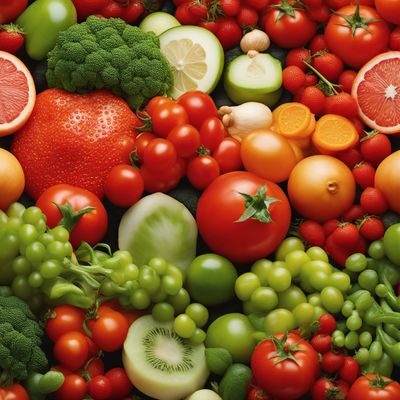
Fruiting vegetables
The Bountiful Harvest: Exploring Fruiting Vegetables

Plants where the vegetative tissue is used as food
Edible Greenery: A Dive into Plant-Based Cuisine

Fungi
The Fungal Delicacy
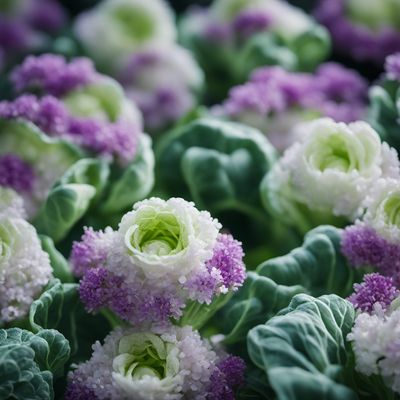
Flowering brassica
The Blooming Beauty: Exploring the Delicate World of Flowering Brassica
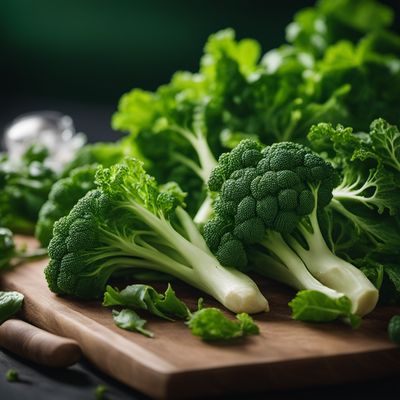
Leafy vegetables
The Verdant Bounty: Exploring the World of Leafy Vegetables

Stems/stalks eaten as vegetables
Versatile Veggie Stems

Legumes with pod
Pods Packed with Nutritional Goodness
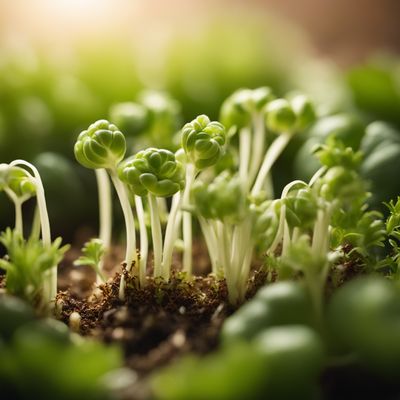
Sprouts, shoots and similar
The Green Revolution: Unleashing the Power of Sprouts and Shoots
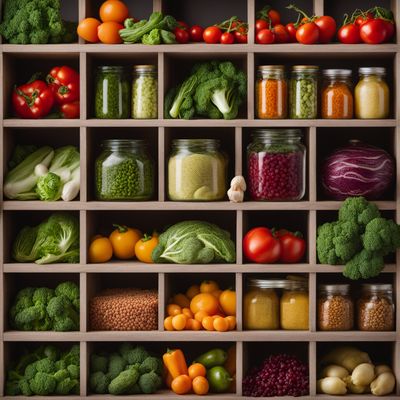
Processed or preserved vegetables and similar
The Art of Preservation: Unlocking the Flavors of Processed Vegetables

Bulb vegetables
The Aromatic Allium Family

Flowers used as vegetables
Edible Blossoms

Root and tuber vegetables (excluding starchy- and sugar-)
The Underground Gems